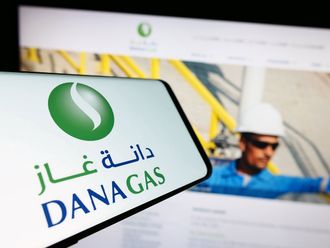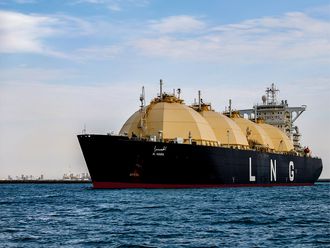Singapore : Fuel oil shipments to Singapore from Europe and the Americas may fall as much as 20 per cent in August after the profits for such cargoes slumped 26 per cent in July.
An estimated 3.2 million metric tons of the refining residue, used to generate electricity and power ships, are likely to arrive in Singapore this month, according to a Bloomberg News survey of seven traders in Singapore and Tokyo. That would be a three-month low, dropping from about 4 million tons in July.
"Supplies from Russia and the US have not been fixed much for August delivery," said Yasuhito Imaizumi, a Singapore-based manager at Petro Summit Pte, a unit of Sumitomo, Japan's third-largest trader. "This was caused by narrowing profit for arbitrage shipments."
Profits for shipping from the West to Singapore, Asia's biggest oil-trading and storage center, dropped in July, curbing the flow of cargoes. The average arbitrage profit, derived from the difference between fuel oil prices in Singapore and Europe with shipping cost, fell to $17.92 a ton in the second half of July from $24.27 a ton in the first half of the month, according to data compiled by Bloomberg.
Only one Very Large Crude Carrier was confirmed to sail in August to Singapore from Rotterdam, part of Europe's independent storage hub with Amsterdam and Antwerp, based on a Bloomberg News survey of four shipbrokers. Three similar supertankers were fixed last month. Vitol Group hired the Maersk Nautica to load 270,000 tons today, said Clarkson Asia, a unit of the world's largest shipbroker. The Albutain Star and Arion were separately placed on provisional charter.
Crack spread
The discount of 180-centistoke high-sulfur fuel oil in Singapore to Dubai crude, the Asian benchmark, may be supported by reduced imports, according to the traders surveyed by Bloomberg. This crack spread measures losses for every barrel of residue produced when refiners make higher value products such as gasoline and diesel.
"The crack spread is becoming less sensitive to the status of supply-demand balance," said Imaizumi at Petro Summit. "It is becoming more vulnerable to the price of crude oil."
High oil prices typically encourage increased output from the Middle East, where crude is heavier and yields more fuel oil. New York oil futures, trading near $80 a barrel, have increased 17 percent since the year's low on May 20.












